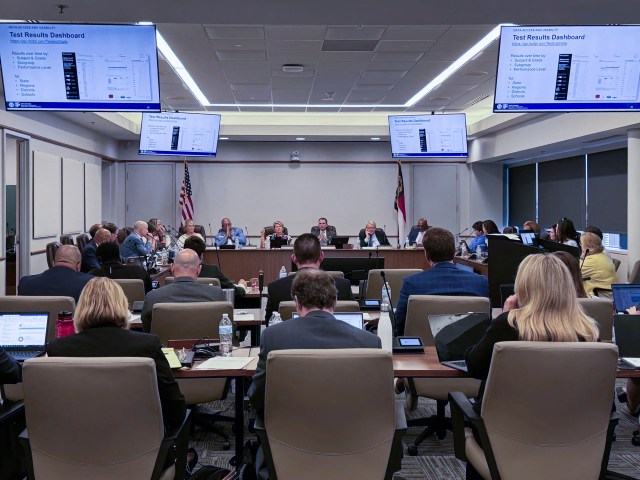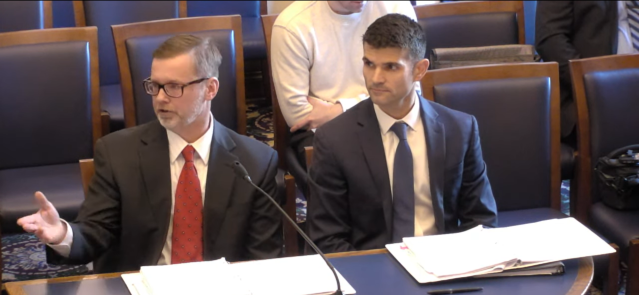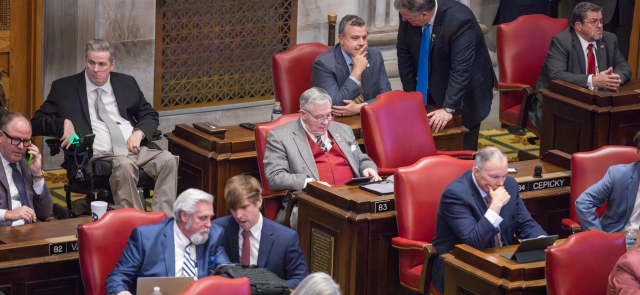Despite rumblings behind the scenes between Republicans and Democrats about a tied Senate, leaders said their focus remains on the majority, and Epstein noted that a tie would require a rewrite of the chamber’s rulebook. Epstein said it is “to be expected” that lawmakers have conversations across the aisle about what a tied Senate would look like, but noted that the focus is to win a Democrat majority. Though Epstein did not deny that such conversations have taken place, she said she has not yet reached out to Republicans to consider what a tied Senate could look like. “I’m a computer systems analyst, so I believe in making decision trees in many aspects of my life,” Epstein said. “As such, I’ve got a decision tree for a 15-15 split. So yes, working on that is an option, but that is certainly not the goal.” In the case of a tied chamber, Epstein said she would seek out an agreement that allows for “checks-and-balances” within the chamber. “If we have a 15-15 split, I’d like people to stop focusing on who is in charge and start focusing on how to have a system of checks and balances,” Epstein said. She said that in the situation of a split chamber the Senate president role would not matter. Instead, new rules should be put into place to ensure fair representation for both parties, Epstein said. For instance, she said one party could have the power to assign bills to committees, while the other could decide which ones receive a floor reading. The agreement, which was made by lawmakers in the Senate in 2000 — the most recent instance in which Arizona has seen a tied chamber — gave Democrats control of powerful committees, such as Appropriations, while a Republican led the chamber. “The rules change,” Epstein said. “If we have a 15-15 split, the first thing we do is re-write the rules. Therefore, the role of the president and the role of committees all need to be set up in that we have checks and balances for both parties. The current rules give the president far too much power.” On the other hand, Petersen said he remains “optimistic” that Republicans will hold their majority – or even flip the chamber. “I think the time to discuss a tied Senate would be after the election and right before the next session,” he said. He added that he has not personally been a part of any discussions about a 15-15 chamber with Democrat lawmakers.
Stay ahead of the curve as a political insider with deep policy analysis, daily briefings and policy-shaping tools.
Request a Demo






